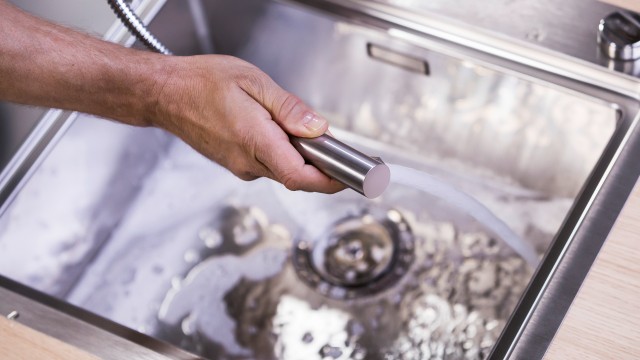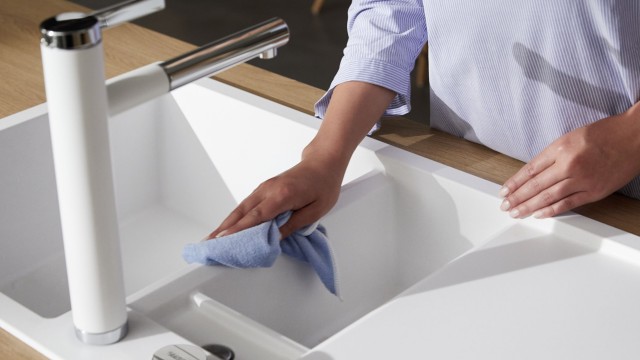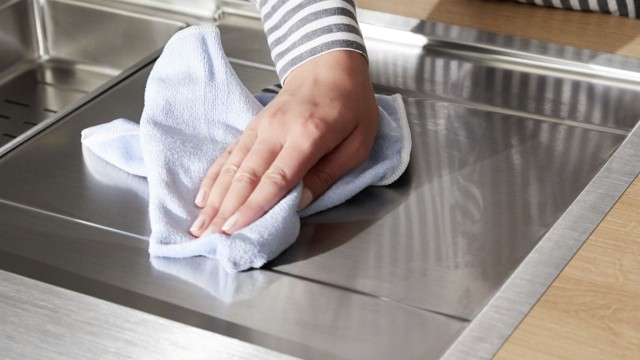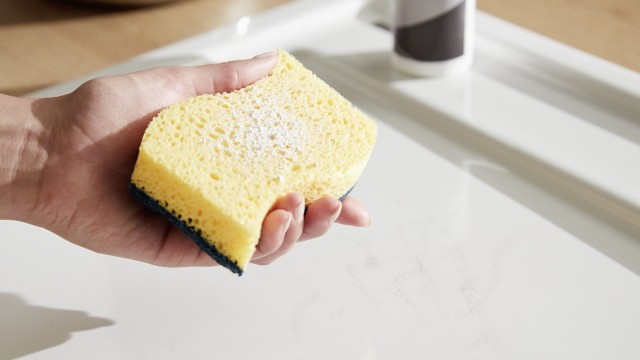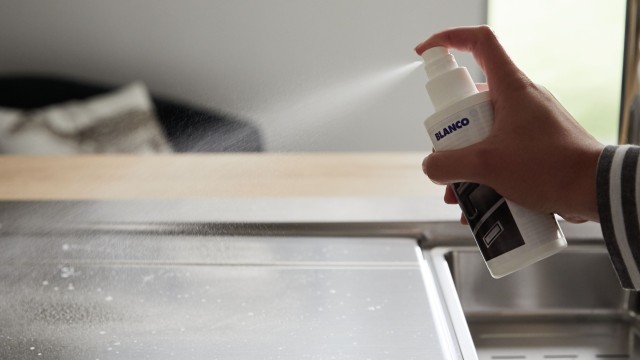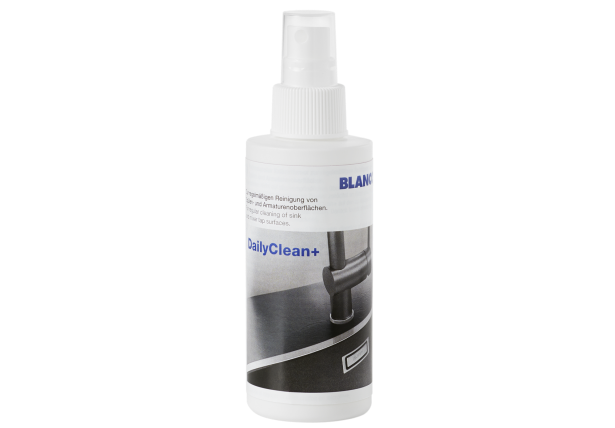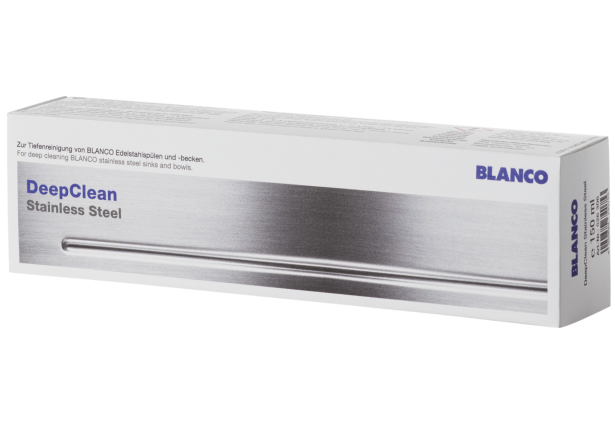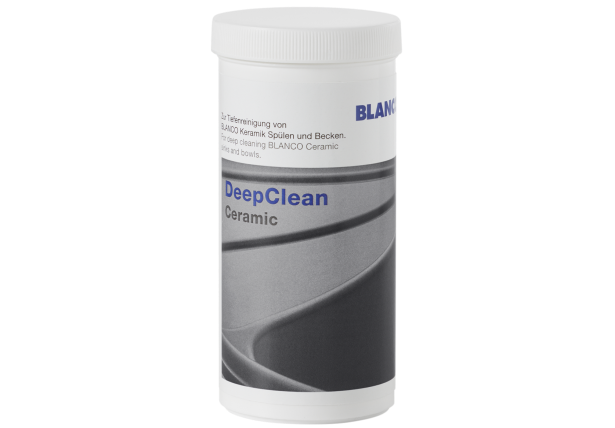What do I need for generally looking after my kitchen?
The cleanliness of our kitchen not only helps protect us against bacteria, but also ensures that we feel good in a clean, orderly kitchen. Once the used cups have been stowed in the dishwasher and the pots have been rinsed with washing-up liquid, we still have the worktop, cooker and sink to deal with. Now it’s a matter of getting rid of the greasy oil spatters or slight limescale deposits caused by droplets of water. Generally speaking, natural cleaning agents such as lemon- or vinegar-based cleaners are perfectly up to the job. Both vinegar essence and vinegar-based cleaners are superb, highly efficient cleaning agents, while also being very environmentally friendly, as the acid breaks down easily. The difference between vinegar essence and ready-mixed vinegar-based cleaners is simply that the vinegar-based cleaners contain pleasant fragrances and other ingredients that ensure even more thorough cleaning.
The problem with too many additives
Yet these very ingredients can cause problems when used with certain materials. Highly promising, antibacterial cleaning agents may be too harsh on surfaces, while scale-dissolving agents contain small abrasive particles that frequently cause scratches and can wear coatings away. Such additives can be detrimental to the longevity of your kitchen, as once coatings are worn away you may start to get rust, water damage or other problems.
